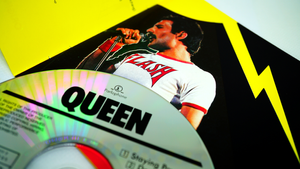Sony Music’s much rumoured deal to acquire the entire Queen catalogue is reportedly in its final stages, valued at a neat billion. And that is £1 billion in pounds, so about $1.27 billion in US dollars. According to sources who spoke to Variety and Hits, there was another bidder in play, who dropped out once the price passed $900 million.
It’s the biggest in the long line of mega-bucks catalogue deals that have been signed in recent years, although it’s hard to accurately compare any one of these deals with another, because it’s not always clear what specific rights they cover.
Sony’s Queen deal is reportedly very wide-ranging, covering not only recordings and songs, but also brand and likeness. With a band like Queen, which has a long standing global presence, those brand and likeness rights will be very lucrative. Pretty much the only revenue stream not covered by the deal is live activity, which means that Brian May and Roger Taylor’s Queen shows with Adam Lambert are excluded. Though, of course, royalties relating to the performance of songs at those shows would not be.
Like any deal of this scale, there are some complexities. Disney-owned Hollywood Records acquired the North American rights in the band’s recordings catalogue - for life of copyright - in a $10 million deal back in 1990. However, the band gets a decent royalty revenue stream from that deal which - assuming the Sony deal completes - will be assigned to Sony.
Universal Music currently controls the recordings in the rest of the world under a distribution deal, which has a couple more years to run. Again, Sony will get the band’s share of the money generated by that distribution arrangement in the short-term, before taking on distribution directly when the UMG deal expires.
Queen originally signed with EMI in the UK in 1973, and for the US initially worked with Elektra before switching to EMI’s US-based Capitol label in the mid-1980s. They then did the deal with Hollywood Records in 1990, the year before Freddie Mercury’s death. Outside North America, the band’s recordings catalogue stayed with EMI until 2010, when the big distribution deal with Universal Music was announced, a couple of years before Universal acquired the whole EMI record company.
On the songs side, the band were published by EMI Music Publishing, which was then acquired by Sony Music Publishing, which means the Sony publisher already handles all the administration of the songs catalogue.
The nitty gritty of these big catalogue deals is rarely revealed, so we don't always know exactly what the buyer gets. However, they do often include a contractual undertaking to direct revenues to the buyer that would traditionally go directly to artists and songwriters via the collective licensing system, even when they are locked in to existing record and publishing deals.
For recordings, that includes performer equitable remuneration from the broadcast and public performance of music. For composition and lyrics, it’s the writer’s share of performing rights income that flows through collecting societies.
With the Queen deal including brand and likeness rights, we can presumably expect a number of significant new products and experiences beyond the music.
While Queen have always been quite prolific when it comes to exploiting the brand, there are a range of new opportunities - including digital brand exploitations and virtual performances like ABBA’s ABBA Voyage. If there’s a band well primed to follow Abba's lead in getting digital avatars performing their songs on stage every night, you have to think it is Queen - though that is perhaps something that will only be realised when May and Taylor finally decide to retire from touring with Lambert.

